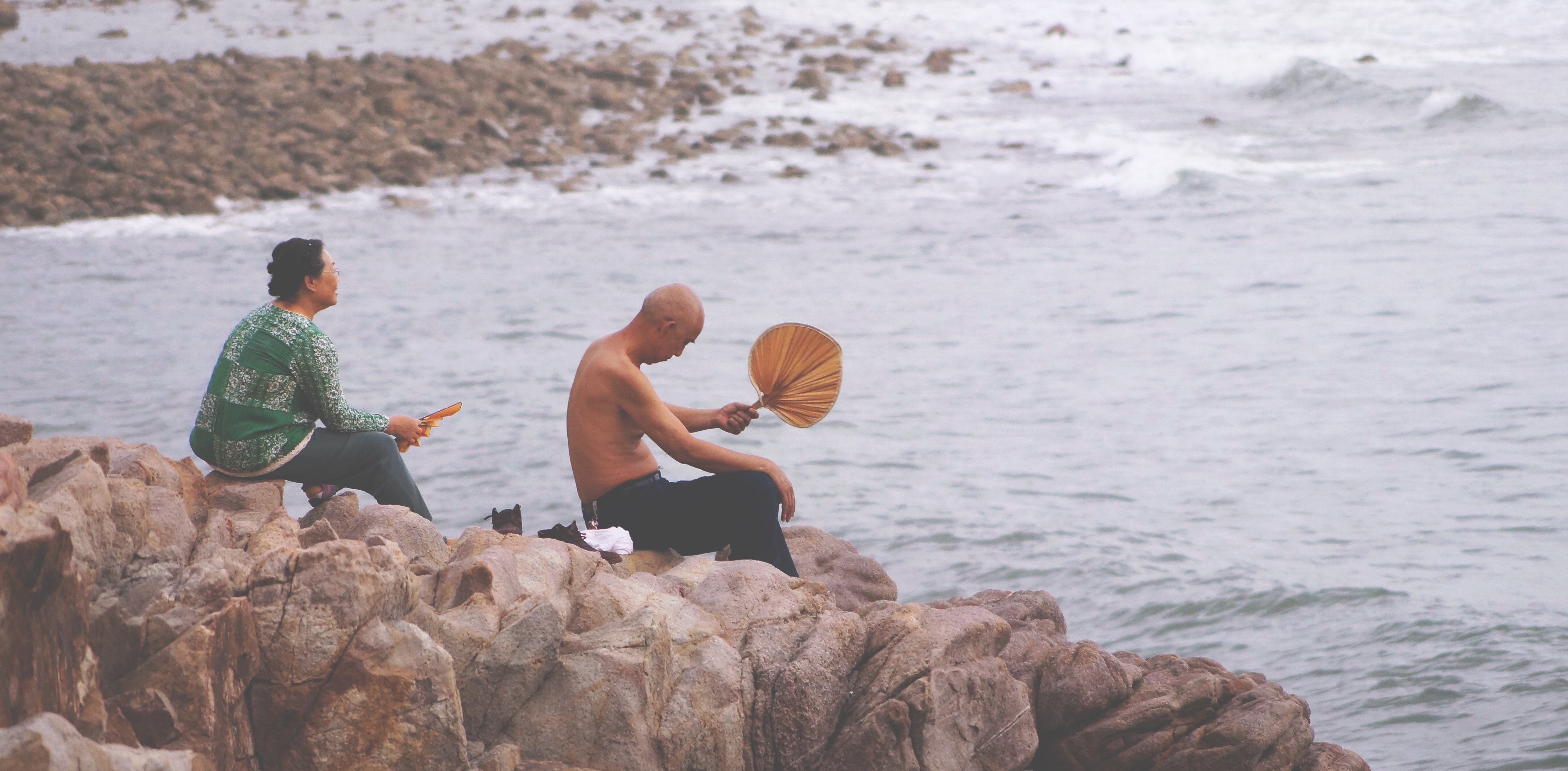Who said that love necessarily implies marriage, that a couple should live under the same roof and that they should share not only affection but also family economics?
Imagine to be able to take a look at the earth from an airplane that’s lowering more and more in order to make the small, moving, living beings visible and recognizable to the human eye.
Imagine to move east far above the equator, close to Tibet and exactly to the south-east of China, between the Yunnan and Sichuan provinces. Imagine to descend a bit more, now you can see a beautiful vast lake, the Lugu lake (泸沽湖 in simplified Chinese) and many little, colourful, buzzling human beings working, walking, taking care of children, cooking, administering the house and making love. Ok, now pick up some of them, the ones who look the most influential, the ones who are taking the lead of the house and around whom people gather. Take a closer look and…oh, they’re women!
Well, target reached, the Mosuo community.
The Mosuo (Mo pronounced as in ‘motor’ and suo as in ‘sword’) is an ethnic group whose people refer to themselves as Na and that counts around 40,000 members.
They are mainly a self-sustained, agrarian community whose economy was mainly based on barter before the intrusion of tourism in the life and economy of the villages. Their typical food is preserved pork and produce a local alcoholic beverage made from grain, called Sulima.
To get to the point, all these details are not the reason why tourism is skyrocketing in the area; the Mosuo society is considered one of the last matriarchal and matrilineal system on earth, as women excercise the power, make choices and as they trace the descent through the female line. Here women enjoy freedom which women of the civilized (aha) western countries must fight for.
How does it work?
The society is organized in extended families whose matriarch is usually the oldest and most clever female member of the house. The family is composed by women, the offspring and by their siblings, but not by the father of the offspring.
In fact, women and men are not expected to get married nor to move in together.
This is the very first pivot of the Mosuo society. Relationships, in fact, are based on love and affection and not on any kind of socio-economical status that needs to be preserved by means of a well combined marriage. After their 13th age, girls are officially considered women (no funeral for girls who die before this age) and are allowed to start the so-called ‘walking marriage’, in Chinese zouhun 走婚. Showing interest is no taboo in the Mosuo ethnic group and after some flirting a man is supposed to visit the girl’s bedroom during the night (unless she closes the window) and leave at sunrise. Even though relationships are usually long-term, the couple won’t ever share the same house, not even after the birth of their offspring. In fact, they don’t only not share properties, but the biological father has only a tiny role in the upbringing of his sons or daughters. What he is expected to care about though are his nieces and nephews; in other words, uncles are more important than biological fathers.
Unfortunately, due to the walking marriages the broad brush says Mosuo women are promiscuous: it is an untruthful common place based on the free, unbinding practice of ‘walking’ heterosexual relationships characteristic of these people.
According to a study conducted in two villages in the Yunnan province in 1987 though, things are more varied than just depicted.
The social survey revealed in fact that almost 26,4% of the households followed the matriarchal, matrilineal scheme described above, where the biological father does not join the woman’s family. 41,4% of the households in fact were organized according to the matri-patrilinear pattern, i.e. the landing household was the mother’s one, but the father did actually move in with the family. In 32,5% of the cases, the scheme was actually the patriarchal one, as the mother moved in with the ‘husband’s’ family.
The ‘Mosuo myth’ is not as naive and simple as often depicted, but this is not the point: Mosuo women enjoy respect, gender equality and freedom from prejudices about their love life. Can we say that the same happens in Europe, in the United States or in Asian societies?
Of course, the path that leads to it is ‘work in progress’ and much has been already achieved, but as the gender pay gap in the EU in 2013 -according to Eurostat – was 16,3%, while in 2015 women in the US were paid 80% of the salary of men, we can’t really state that in the ‘civilized’ Western countries the difference has been resolved. Furthermore, inequality articulates in many other ways, from verbal discrimination -probably the most widespread and least detectable way to discriminate – to education possibilities, inside and outside of the household.
Have you ever complained with your mother that you were supposed to stay at home, help with the house works and come back early in the evening, while your brothers were allowed to stay out late and had no formal ‘cleaning’ duties? We bet you did.
Well, check out this documentary about Mosuo women.
As a girl in the video says “Girls can do everything they want, right? Isn’t that great?”
Sources:
http://www.second-congress-matriarchal-studies.com/gatusa.html
Family marriage and fertility in a matriarchal society — social survey of the Naxi nationality in Ninglang County, Yunnan Province, Chinese Journal of Population Science. 1990; 2(3):247-56.


Great post!
https://sagrikajhamb.wordpress.com
LikeLiked by 1 person
Thank you 🙂
LikeLiked by 1 person
Pretty interesting 🙂
LikeLiked by 1 person
Pretty interesting read 🙂
LikeLiked by 1 person
Thank you very much!
LikeLiked by 1 person
Super interesting post!
LikeLiked by 1 person
Thank you!!
LikeLiked by 1 person